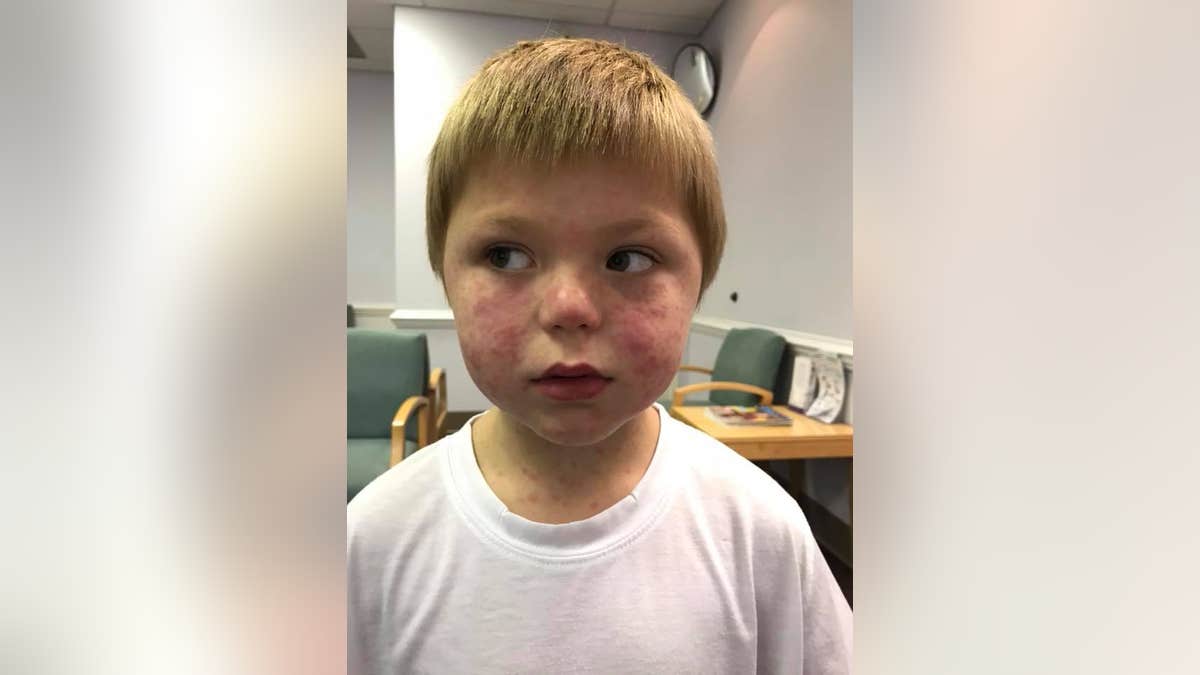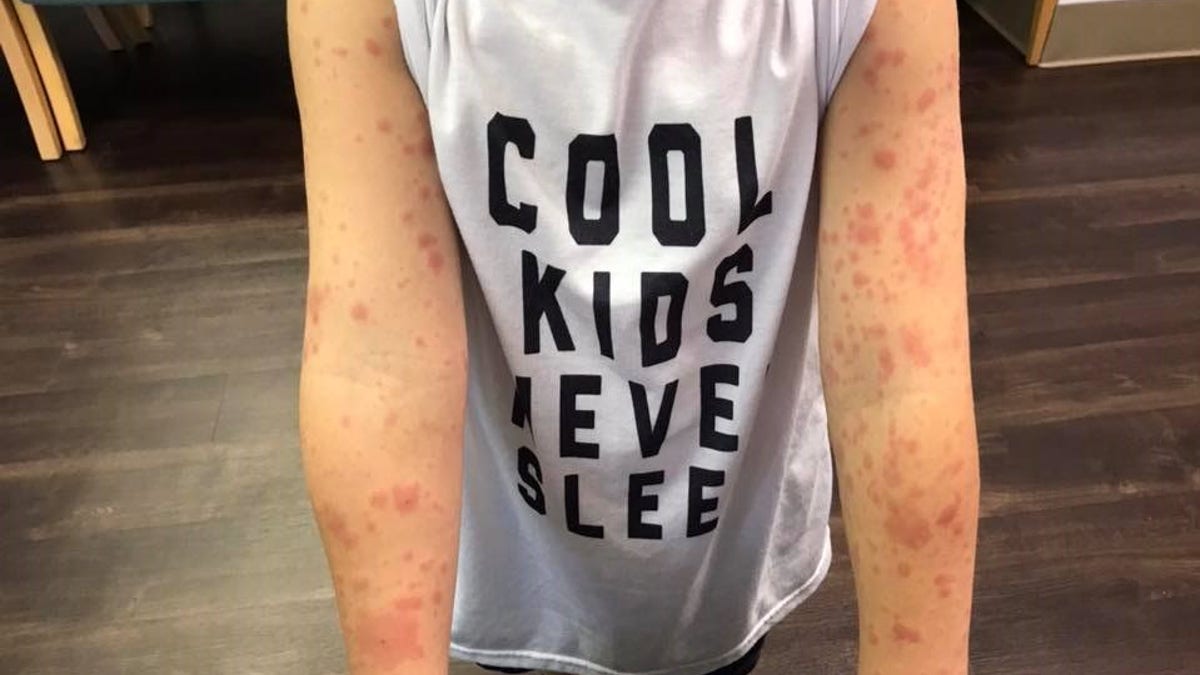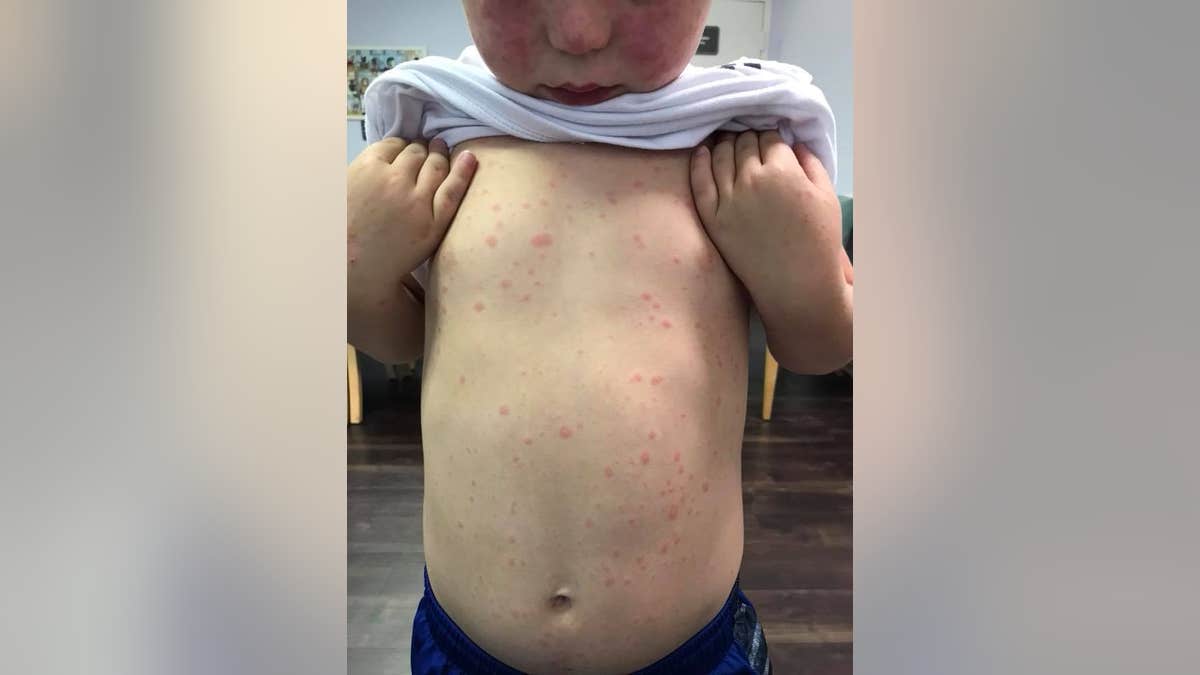
Mason McNair, 5, broke out in a rash due to the tick bite. (Danielle McNair)
One Georgia mother is warning others after her son contracted a rare disease from a tick bite.
On May 10, 5-year-old Mason McNair was staying with his grandparents in LaGrange, Georgia, when they noticed a tick inside of Mason’s belly button. The tick was promptly removed, but it “got infected and very red around the entire bite,” his mother, Danielle McNair, wrote in a Facebook post.
McNair promptly took Mason to the doctor, who prescribed him an antibiotic. But 10 days later, Mason’s symptoms worsened. The young boy was plagued with fatigue, diarrhea, fever, headaches and pain in his abdomen, according to his mother. On the last day of his medication, Mason also broke out in a rash from “head to toe,” McNair said.
At first, McNair thought it was a heat rash. But she soon realized it was not, as the red spots on Mason’s body worsened, becoming bigger and more visible.

The young boy also had other symptoms that included fatigue, diarrhea and a fever. (Danielle McNair)
Again, the worried mother took her son to the doctor, who told her the rash was possibly a “delayed reaction” to the antibiotic. But McNair wasn’t convinced.
“I was NOT satisfied with that answer and neither was my sister, who told me they needed to do a tick panel on him. I called back after doing my own research on tick-borne diseases and showed them what I had found on Rocky Mountain spotted fever,” she wrote.
After investigating McNair’s suspicion, Mason’s doctors confirmed the young boy did, in fact, have Rocky Mountain spotted fever. The condition is a bacterial infection that can lead to the amputation of limbs, hearing loss, paralysis and mental disabilities, according to the Center for Disease Control and Prevention. In 2014, there were roughly 3,500 cases of the infection in the United States.

Mason's mom Danielle wrote on Facebook that her son is now "completely healthy." (Danielle McNair)
Soon after, Mason was treated with the correct antibiotic and he is now “completely healthy,” his mother wrote.
"This experience has by far been the most scariest situations our family has been through," McNair told Fox News. "Knowing what Rocky Mountain spotted fever can do to his body and that it can be fatal if not treated is just devastating."
McNair said she was thankful she did her own research and that Mason's doctors were willing to work with her to figure out what was wrong with her son.
"They have always been very open-minded doctors toward me. I am thankful that I did my own research though so that I was able to present it to them to figure out what is wrong with Mason," she said, adding that she's glad that her son's story has raised awareness about ticks.
"I don’t think everyone is aware at how serious and life-threatening ticks can be," she said.
